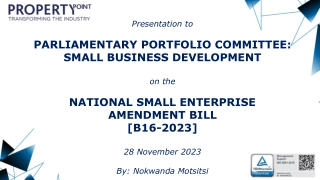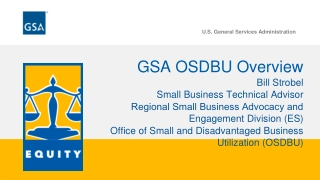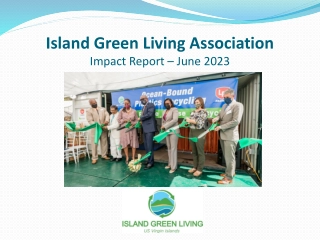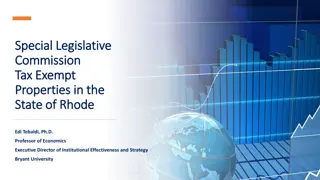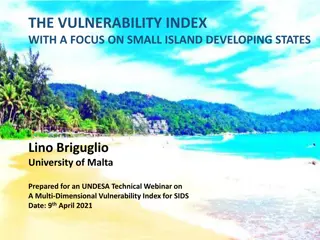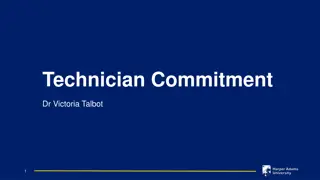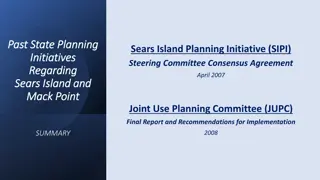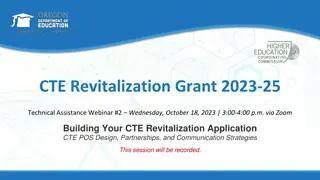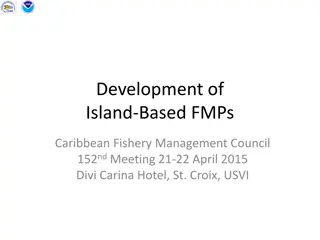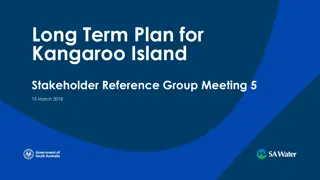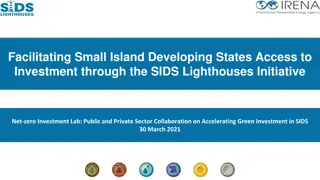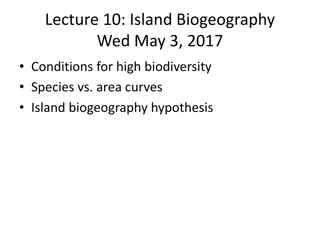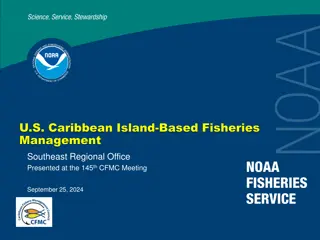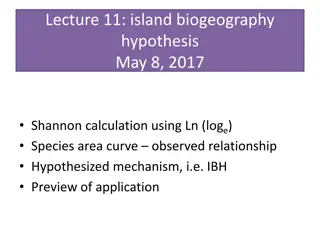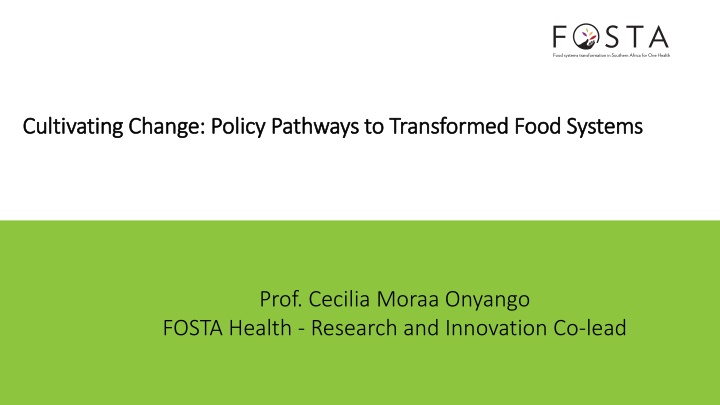
UNDESA Technical Webinar Series: Key Initiatives for Small Island Developing States
In 2010, the UN General Assembly called for concrete recommendations to address vulnerabilities of small island developing States. Subsequently, in 2011, the Economic and Social Council echoed this call. The 2014 SAMOA Pathway reaffirmed commitments to tackle the challenges faced by these States. Recent resolutions highlight the need for urgent actions and innovative solutions. Leaders stress the importance of global cooperation, especially in the face of crises like COVID-19. Stay informed about ongoing efforts to support small island developing States.
Download Presentation

Please find below an Image/Link to download the presentation.
The content on the website is provided AS IS for your information and personal use only. It may not be sold, licensed, or shared on other websites without obtaining consent from the author. If you encounter any issues during the download, it is possible that the publisher has removed the file from their server.
You are allowed to download the files provided on this website for personal or commercial use, subject to the condition that they are used lawfully. All files are the property of their respective owners.
The content on the website is provided AS IS for your information and personal use only. It may not be sold, licensed, or shared on other websites without obtaining consent from the author.
E N D
Presentation Transcript
Cultivating Change: Policy Pathways to Transformed Food Systems Cultivating Change: Policy Pathways to Transformed Food Systems Prof. Cecilia Moraa Onyango FOSTA Health - Research and Innovation Co-lead
OUTLINE OUTLINE THE FOOD SYSTEM CHALLENGES FACED BY CURRENT FOOD SYSTEM ROLE OF POLICY IN TRANSFORMING OUR FOOD SYSTEMS
The Food Systems All steps from the farms to our tables - P Production, P Processing, D Distribution, C Consumption, D Disposal The sum of actors and interactions along the food value chain Source: Wilkins and Eames-Sheavly htttp//www.discoverfoodsys.cornell.edu
The Urgency The Urgency of of Food Systems Transformation Food Systems Transformation Hunger and malnutrition: Nearly 800 million people globally suffer from hunger, while many others lack essential nutrients for a healthy life. Environmental degradation: Food systems are a major driver of climate change, deforestation, and biodiversity loss. Social inequity: Small-scale farmers, indigenous communities, and women often face discrimination and lack access to resources within the food system.
CURRENT FOOD SYSTEMS CHALLENGES CURRENT FOOD SYSTEMS CHALLENGES SOCIAL AND ECONOMIC CHALLENGES SOCIAL AND ECONOMIC CHALLENGES Food insecurity and Food insecurity and malnutrition people lack access to sufficient, safe, and nutritious food Inequality Inequality - -discrimination and lack access to resources e.g. small-scale farmers, Economic volatility Economic volatility - - Price fluctuations, trade barriers, and market failures- impact food affordability by all Public Public health concerns health concerns - - Unhealthy diets- Processed foods and excessive consumption - obesity, diabetes & other chronic diseases ENVIRONMENTAL CHALLENGES ENVIRONMENTAL CHALLENGES Climate Climate change change - extreme weather events disrupt agricultural production, leading to crop failures and livestock losses, Deforestation and land degradation Deforestation and land degradation - contributes to soil erosion, biodiversity loss, and climate change, Water scarcity and pollution Water scarcity and pollution - - Over-extraction and contamination of water resources threaten food production and human health, Biodiversity loss Biodiversity loss - impacts ecosystem services essential for food production malnutrition- Millions of OTHER CHALLENGES: OTHER CHALLENGES: Food Food waste waste - -S Significant amounts of produced food lost or wasted, Antimicrobial resistance Antimicrobial resistance and food safety hazards and food safety hazards-overuse/misuse of antibiotics hence drug-resistant bacteria, toxic pesticides etc posing a threat to human health, Pests and diseases Pests and diseases - - e emerging pests and diseases leading to food shortages and economic losses.
ROLE OF POLICY IN TRANSFORMING OUR FOOD SYSTEMS ROLE OF POLICY IN TRANSFORMING OUR FOOD SYSTEMS Policy interventions are essential to create more sustainable, equitable, and resilient food systems Incentives for sustainable practices Incentives for sustainable practices: Policies that support farmers to adopt practices that reduce greenhouse gas emissions, conserve water, and protect biodiversity. Investments in innovation Investments in innovation: Policies geared towards new technologies and approaches improve food production, processing, and distribution. Trade policies that promote fairness Trade policies that promote fairness: Fair trade policies ensure that farmers receive a fair price for their products.
Sustainable food systems Financing & Investment Production & Productivity Equitable Equitable Livelihoods Livelihoods Nourishing Nourishing All People All People Enabling Policies (ICT, Gender, Research & Development) Nutrition & Healthy Diets Protecting the Protecting the Environment Environment Climate Change & Environment Resilient Food Systems
Key Policy Pathways for Transformation Key Policy Pathways for Transformation Focus Focus on natural ecosystems, such as crop rotation, cover cropping, and integrated pest management. Reduce food waste Reduce food waste: Implement policies that address food waste throughout the supply chain, from farm to fork. Invest in research and development Invest in research and development: Support research on new technologies and approaches that can improve food production, processing, and distribution. Support Support smallholder farmers smallholder farmers: Provide access to credit, extension services, and markets to empower small-scale farmers and enhance food security. Promote healthy diets Promote healthy diets: Encourage policies that make healthy and affordable food choices easier for consumers. Diversification: Diversification: Encourage crop diversification to reduce vulnerability to pests, diseases, and climate shocks. on agroecology agroecology: Promote sustainable farming practices that mimic
Experiences from the FOSTA Health Experiences from the FOSTA Health Project Transformations Transformations Project - - Four Four Food Systems Food Systems Transformations Transformations within and out of maize production within and out of maize production (the region s dominant staple) with a focus on production systems in Southern Malawi and the Tanga District of Tanzania. Transformations of land and water use Transformations of land and water use, including intensification, land use expansion and irrigation, with a focus on Southern Malawi and Central Zambia. Transformations from domestic to export markets Transformations from domestic to export markets for high value commodity crops, such as fresh fruits and vegetables, with a comparative focus on the Tanga District of Tanzania and Gauteng Province, South Africa. Diet diversification and transformations Diet diversification and transformations towards higher protein, fats and refined oils in diets, with a focus on the interconnected supply chains of soyabean, poultry and beef across Zambia and South Africa. The four transformations present significant opportunities for the development of policies that ensure sustainable and resilient food systems
Let us not underestimate the transformative potential of our actions and the Power of Policy. By advocating for policies that prioritize sustainability, equity, and resilience, we can cultivate a future where healthy food nourishes both our bodies and our planet A transformative food systems Let us be the change we wish to see in the world, and let us work together to build a thriving and just food system for generations to come. Thank you! Thank you!

